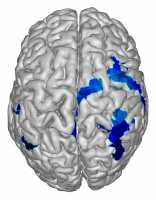MedicalResearch.com Interview with:
Michael C.
Trumbo,
Sandia National Laboratories
Department of Psychology
Psychology Clinical Neuroscience Center
The University of New Mexico
Albuquerque, NM
MedicalResearch.com: What is the background for this study? What are the main findings?
Response: The impetus for this study can be found in claims made by several commercial enterprises that you can get cognitive benefits from brain training games intended to enhance working memory (the amount of information you can hold and manipulate in your mind at one time). However, a burgeoning body of research shows working memory training games often do not provide the benefits claimed. Research led by my colleague Laura Matzen shows evidence that working memory training may actually impair other kinds of memory.
A key concept in demonstrating improvement of the working memory system is task transfer – if working memory has been improved, then that improvement should be evident when attempting tasks aside from the trained task, to the extent that these new tasks utilize working memory. Brain stimulation combined with working memory training might work when training by itself falls short because stimulation allows for manipulation of brain plasticity in brain regions that are relevant to working memory task performance. If you’re improving connectivity in a brain region involved in working memory, then you should get transfer to other tasks to the extent that they rely on that same brain region. When you’re having people do tasks in the absence of brain stimulation, it’s not clear if you’re getting this general improvement in working memory brain areas. You might be getting very selective, task kind of improvements due to use of task-specific strategy development.
Therefore, the current study was designed to see if noninvasive brain stimulation paired with different types of working memory training might result in improvement not only in the trained task, but in related tasks. The findings suggest that particular parings of stimulation parameters and training programs result in working memory improvement. This is important because
working memory is a critical component of many everyday tasks, such as reading and language comprehension, and working memory deficits are common in a number of disease states, such as depression. Working memory decline is also evident as part of the healthy aging process, beginning as early as your mid-20s. Therefore, a safe, reliable way to improve working memory stands to benefit both healthy and clinical populations in a variety of task domains which are critical to achieving a high quality of life.
(more…)























